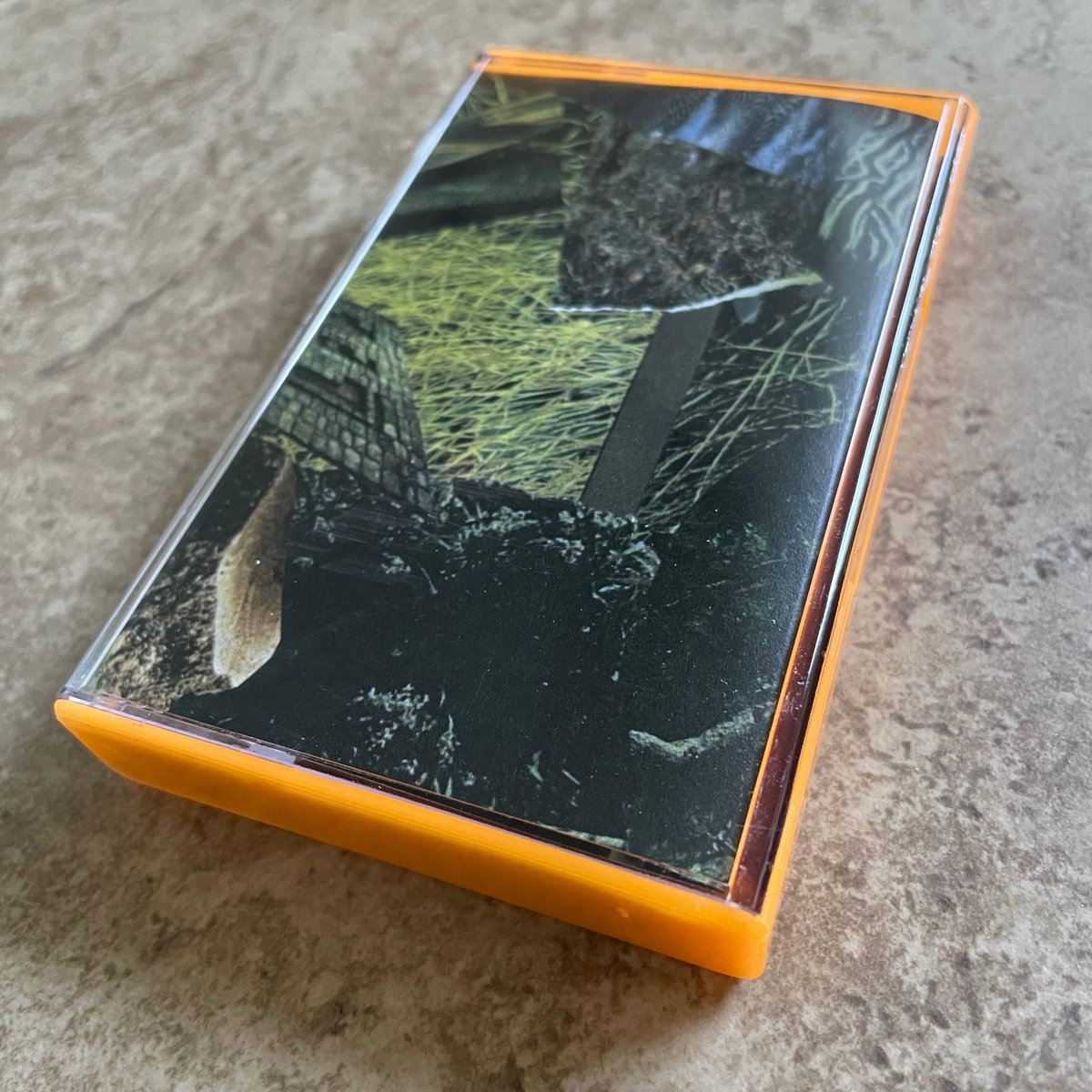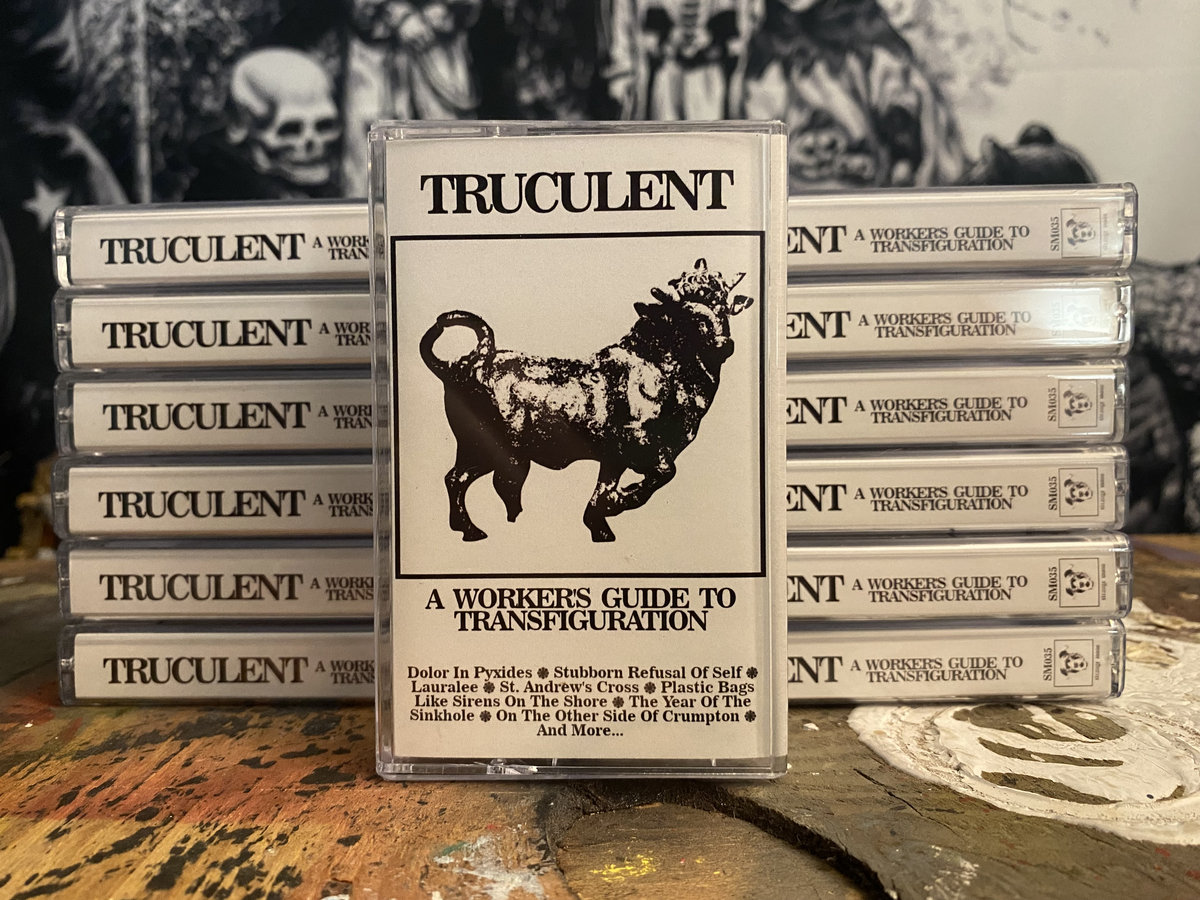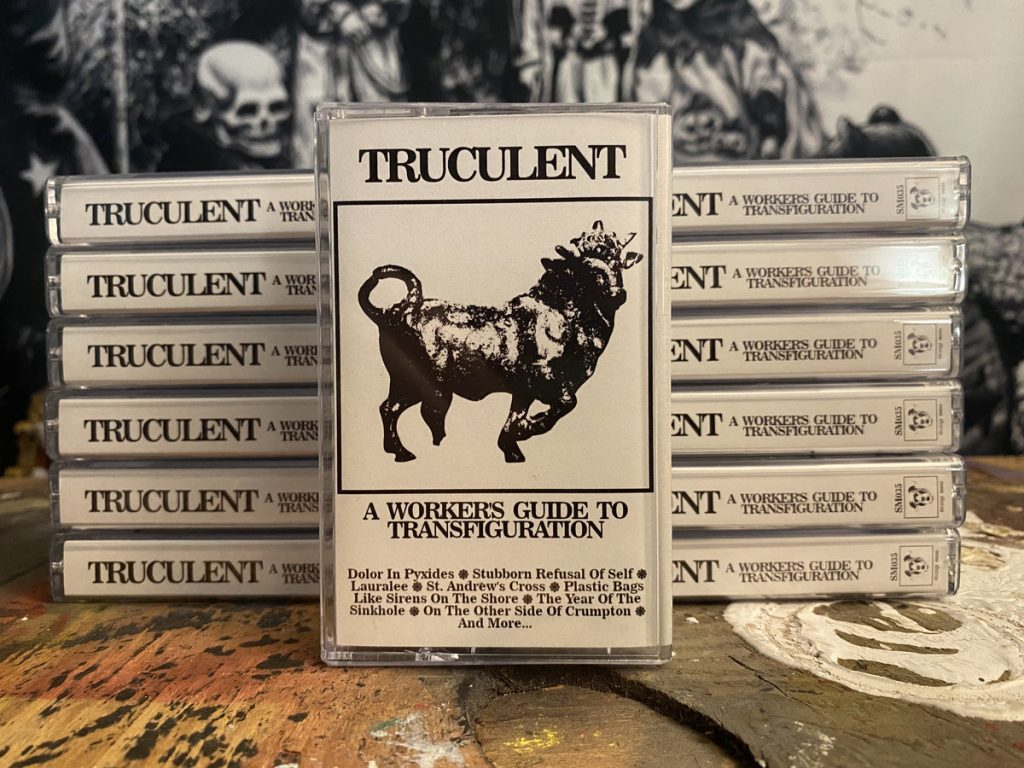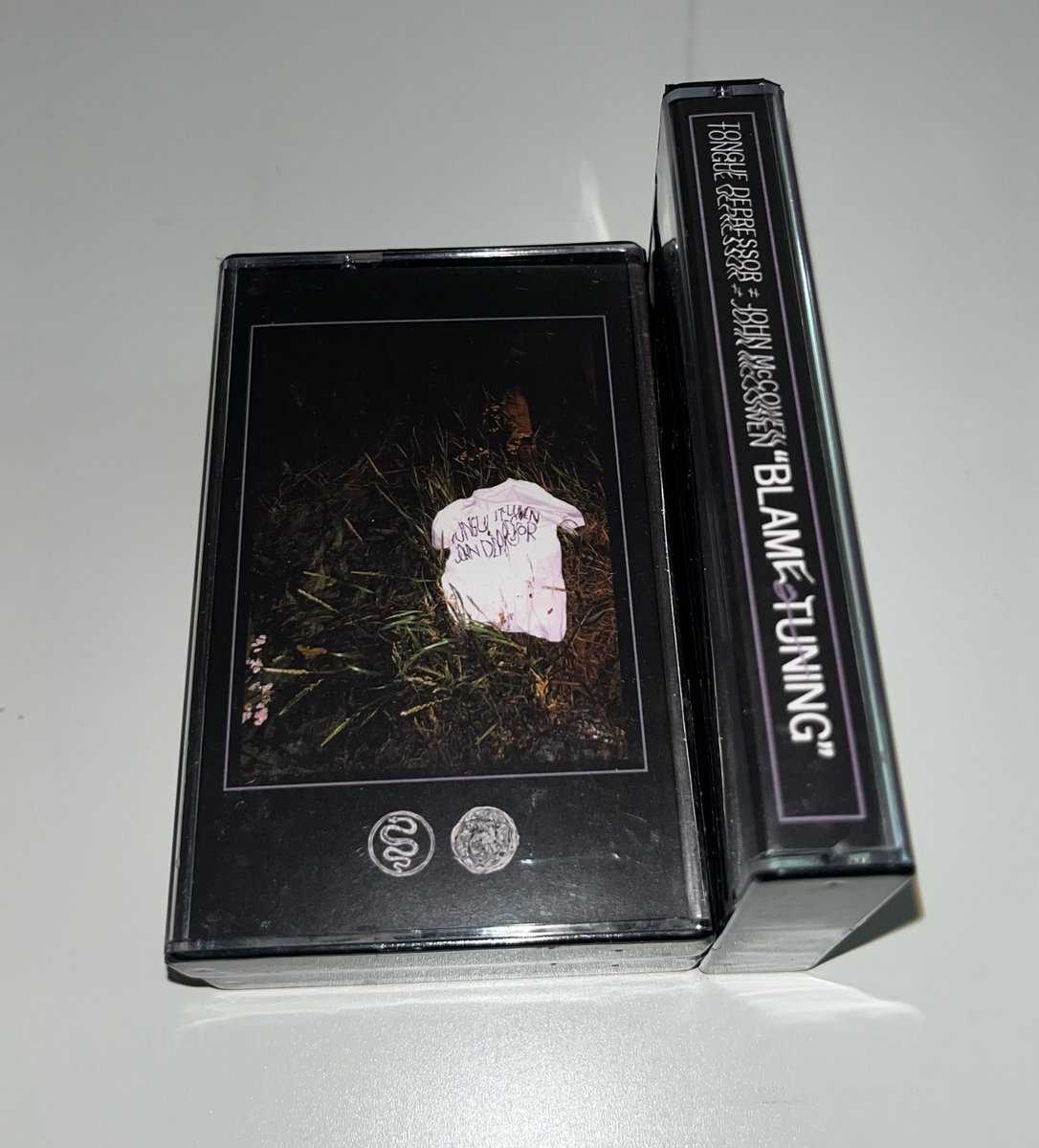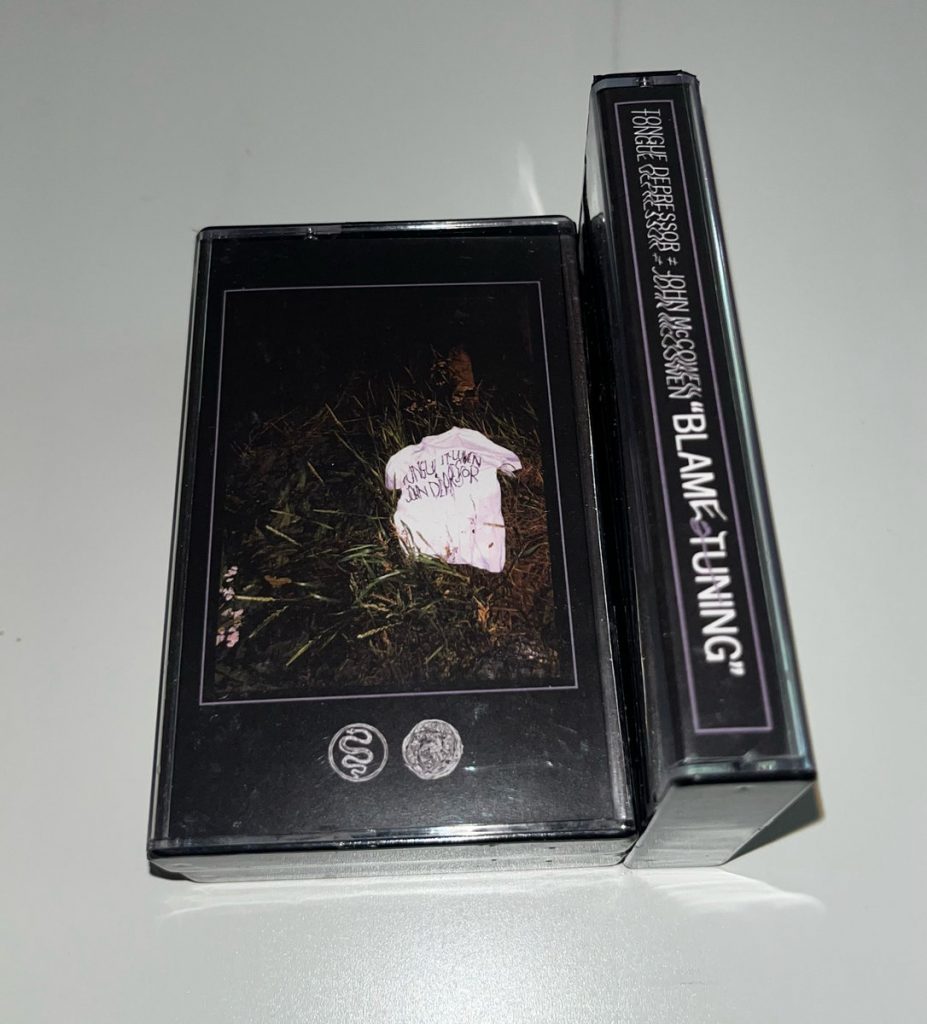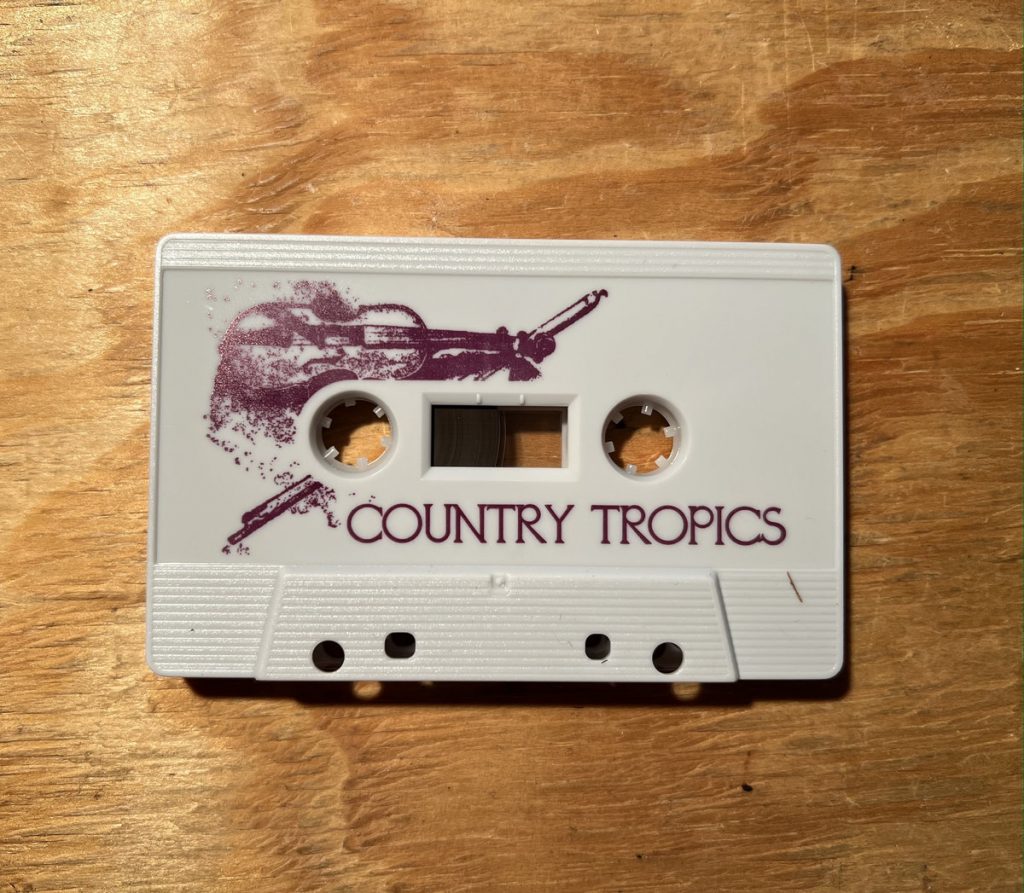Modern Lamps – Ruby Throated Wind
10.19.2023 by Ryan Masteller
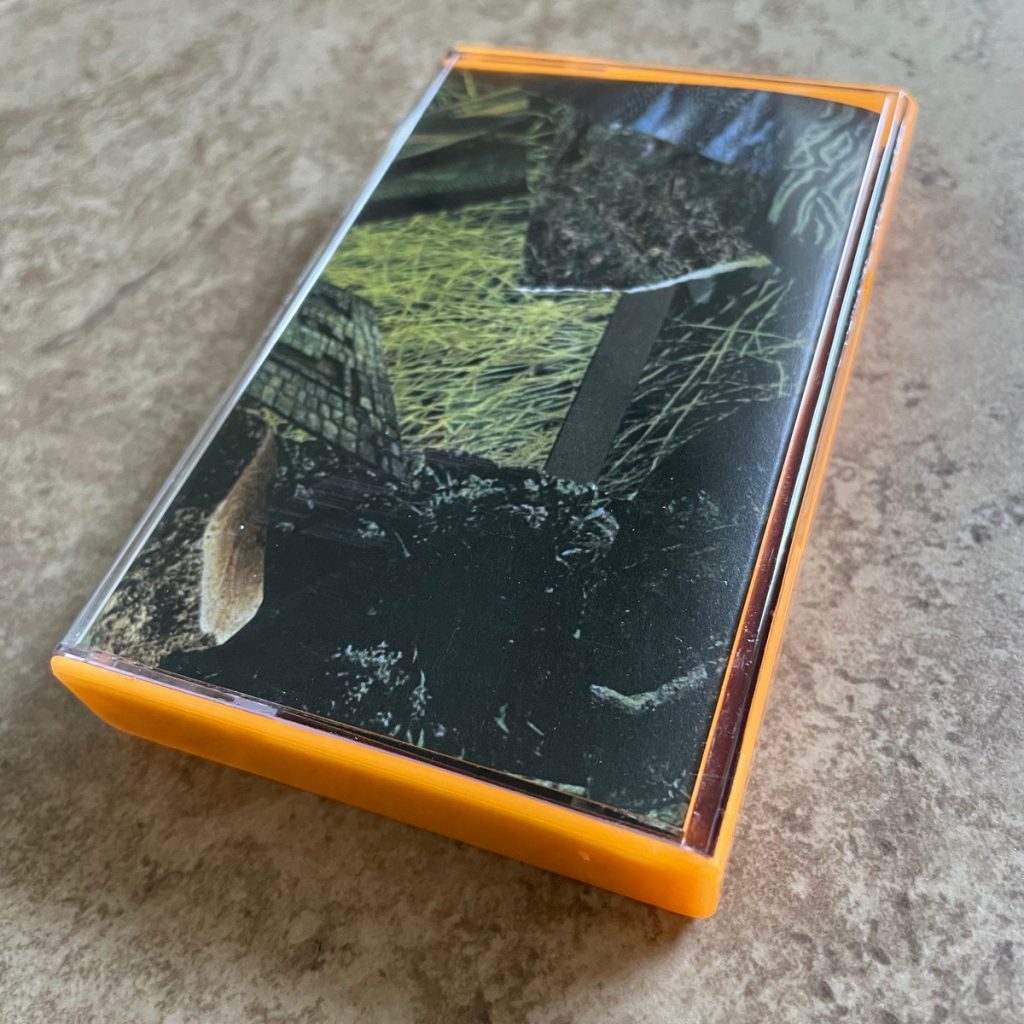
I was on the Tabs Out Cassette Podcast a couple of weeks ago as a guest (I have to work on preparing material ahead of time it seems) during the Marc Masters interview segment about his book, High Bias: The Distorted History of the Cassette Tape. I received this honor because Marc used some quotes of mine in his book (thank you, thank you, self-plug). But the tragedy of the event was that a good chunk of the interview, and any content that I contributed, was lost forever in a recording snafu – i.e., the Zoom call drifted into the ether instead of encoding itself in an audio file. So we tried a do over, but it just wasn’t the same. The energy was different. Plus I had to leave right when everything got sorted.
Imagine, then, an experimental duo, in this instance Rachel and Grant Evans, proprietors of the tape label Hooker Vision, playing a show for the first time since 2009 in April 2023 and not recording it, despite it being a triumphant success and a total vibe masterpiece surely inspiring the audience to go out and jam likewise. And while I wasn’t there to confirm, it’s hard not to imagine the truth of the show’s success because the Lamps decided they wanted to hit the studio, months later, and record what they did for posterity. I mean, isn’t that crazy? Wouldn’t distance and time have totally altered the feel of the pieces and rendered them completely unrecognizable from the original venture? Was this even a good idea – would it even sound OK? Would somebody have the wherewithal, the grit, the tenacity to hit the record button?
The answer to all those questions, surprisingly, is yes. First of all, we should probably not doubt the Hooker Vision folks in any way – Rachel and Grant have been letting the label cook for a long time, but they did go on hiatus for a bit, from November 2014 to October 2021, when they dropped a Modern Lamps / Motion Sickness of Time Travel (Rachel’s excellent solo gig) release, igniting the fuse on their triumphant return. (In fact, Twitter/X user Gremlins 2 Official responded to a “present listening” pic I took of Ruby Throated Wind with “great to see hooker vision in 2023,” typing out loud what we were all thinking.)
Second, somebody did hit record, though it likely wasn’t Tabs Out’s own Jamie Orlando. (Sorry, Jamie.)
And third – who cares if they did the exact same performance that they cranked out live? “Everything has changed but that’s OK!” they declare, as they blow into their clay flutes and whistles, the same ones (probably) they used for their performance. Rachel does her thing on bass, electric piano, and synthesizers. Grant zones a daunting clarinet, adding to the atmosphere with percussion and electronics. You feel like you’re in the room with them throughout Ruby Throated Wind.
And while that room is in Athens, Georgia, likely a humid one, sweltering in the summertime, Modern Lamps kick up a bit of a dust storm with side A, a cosmic pastiche of nighttime desert ambiance as sands shift and stars fall, the playing reverent to the universe as time and space zoom closer to the point of physical contact. Then the bass kicks in and the shamanic undulations ensue, a ritualistic otherworldly hoe-down whose rhythm, while abrupt at first, melts into the night and forms a spiritual core.
The Evanses contemplate the stars on side B, drifting in and out of meditation. The clarinet and piano flit seamlessly about each other, accentuating the most incredible moments with delightful interplay. The track fades out on an odd sing-songy choral sample – not sure of the source, but it’s weathered and (sounds) pitched, but it’s deceptively stirring. The whole thing probably serves to render that original performance moot. Well, probably not, especially for those who were there, but my imagination of what I’ve never heard pales in comparison to Ruby Throated Wind. This one’s a keeper.
The tape comes in an edition of 40 and is still available!

